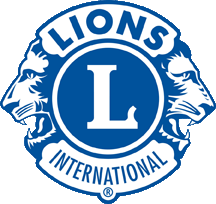
Advanced Member
- Group
- Administrator
- Posts
- 1,309
- Status
- Offline
|
|
* FITCH DOWNGRADES TELECOM ITALIA TO 'BB'; OUTLOOK NEGATIVE
* FITCH SAYS TELECOM ITALIA RATING DOWNGRADE REFLECTS GREATER-THAN-EXPECTED EROSION OF EBITDA, HIGHER COSTS AND SUSTAINED NEGATIVE FCF
* FITCH SAYS EXPECT TELECOM ITALIA'S FFO NET LEVERAGE TO EXCEED DOWNGRADE THRESHOLD OF 4.3X IN 2022 AND REMAIN SUSTAINABLY ABOVE THIS LEVEL FOR MEDIUM TERM
* FITCH SAYS TELECOM ITALIA'S NEGATIVE OUTLOOK REFLECTS FITCH'S VIEW THAT IMPROVEMENTS IN EBITDA MAY NOT OCCUR SUFFICIENTLY FAST TO MAINTAIN 'BB' RATING
Fitch Ratings has downgraded Rome-based Telecom Italia S.p.A's (TI) Long-Term Issuer Default Rating (IDR) and senior unsecured rating to 'BB' from 'BB+'. The Outlook on the IDR is Negative. A full list of rating actions is available below.
The rating downgrade reflects greater-than-expected erosion of EBITDA, higher costs at a time of significant investment outlay and sustained negative free cashflow (FCF). As a result, we expect TI's funds from operations (FFO) net leverage to exceed its downgrade threshold of 4.3x in 2022 and remain sustainably above this level for the medium term. The Negative Outlook reflects our view that improvements in EBITDA may not occur sufficiently fast to maintain the 'BB' rating.
TI's new strategy to separate its fixed, local access network assets from its current operating scope creates some short-term uncertainty to the rating. While this may not necessarily be negative for TI's rating and credit profile, the impact will be dependent on the transaction structure and extent of any subsequent reallocation of debt. Fitch has based TI's rating on its current operating scope including fixed network assets.
KEY RATING DRIVERS
Significant EBITDA and Cost Pressures: TI's total organic EBITDA (before leases) declined 12% in 2021 to EUR6.2 billion, driven primarily by its domestic business. We expect this to decline further in 2022 by another 12% before gradually improving from 2023. The extent of decline is much sharper than we anticipated and due to competitive pressures, continued loss of high-margin revenue from legacy products, the impact of new laws on retail contracts, stricter-than-expected rules on government support vouchers and content costs that are not being matched by sufficient revenue improvements. In addition, higher-than-expected one-off costs have further weakened cashflow.
Competition and Cost Reduction Uncertainties: We expect competitive pressures in the mobile and fixed wholesale segments will continue over the next two to three years as rivals Iliad Italy builds scale and Open Fiber continues the build-out of its network. The pace at which TI is able to offset this impact through cost reduction is uncertain and dependent on strong execution. Its new management expect to reduce their addressable cost base in Italy of EUR4.8 billion by 15% in 2024. This equates to about 6pp in EBITDA margin and if fully achieved and retained, would represent an upside to Fitch's base case forecasts.
Leverage Increasing, Negative FCF: Fitch's base case forecasts assume that TI's FFO net leverage will increase to about 5.4x at end-2022 from 4.3x at end-2021 and then gradually decline to around 5.2x by 2024. We expect TI's FCF will remain negative for at least three years. Its leverage is above the downgrade threshold and underlines the Negative Outlook. The increase in leverage is driven by EBITDA erosion, higher interest and tax costs, and EUR2.1 billion of spectrum costs in 2022. We expect improvements in leverage, driven by lower content costs as TI unwinds a contract with DAZN and by operational cost reduction.
New Strategy: TI plans to sperate its operations into a network company (NetCo) and service company (ServCo) to increase operational focus, reduce regulatory burden, achieve better capital allocation and increase perceived value. NetCo will house the company's fixed, local access network while ServCo will house its enterprise, consumer and Brazilian assets, which include its domestic mobile network operations. TI expects that each entity will generate about EUR2.2 billion in EBITDA. The separation could also increase strategic opportunities for TI that could facilitate market consolidation.
Impact of Network Separation: The impact on TI's rating from the creation of NetCo will depend on the structure of any subsequent transaction that could see the deconsolidation of the business from TI's existing operational scope. A deconsolidation as a result of a demerger, carve-out or sale would result in a weakening in TI's operating profile that would result in reduced leverage capacity at any given rating level. The impact on TI's rating will therefore be driven by the extent to which debt at the remaining ServCo is reduced (see report What Investors Want to Know: European Telecoms Infrastructure Sales, March 2021).
Strong Market Position to Remain: Despite the competitive and costs pressures that TI is facing, its market position will remain strong and cashflow in the medium term has strong scope for improvement. TI is well-positioned to exploit developments in 5G, it owns the leading fixed infrastructure in the country and will benefit from technological changes that will significantly help reduce the cost base in the long run (e.g. software defined networks and all IP services). TI currently has a market share in fixed broadband and mobile of around 42% and 29%, respectively. We expect TI will cede some market share in the next two to three years but retain a leadership position.
TI has an ESG Relevance Score of '4' for Governance Structure. This reflects historic conflicts between TI's shareholders. While these have been stable over the past three years there has been a frequent change in TI's senior leadership team. Such changes weigh on TI's rating to the extent that any flare-ups could detract from the deployment of a coherent strategy, and lead to slow improvements in cost structure and distracted execution.
DERIVATION SUMMARY
TI has a strong domestic position, but reduced ownership in its local access network, despite retaining control, slightly weakens its operating profile versus other western European incumbent telecom operators that fully own their local access network. TI's leverage thresholds are on a par with those of BT Group plc (BBB/Stable), which fully owns its local access networks but faces free cash flow (FCF) volatility from pension deficits, a competitive environment and content price inflation. Like TI, Royal KPN N.V.'s (BBB/Stable) revenue mix has a domestic focus, but it has ownership of a majority of its entire local access network. BT's and Royal KPN's higher ratings reflect their lower leverage.
Higher-rated peers such as Deutsche Telekom AG (BBB+/Stable) and Orange SA (BBB+/Stable) have greater diversification, and either lower leverage or greater organic deleveraging capacity.
KEY ASSUMPTIONS
Fitch's Key Assumptions Within Our Rating Case for the Issuer
- Revenue in Italy to decline 1% in 2022 before growing in 2023 and broadly flat in 2024
- EBITDA margin (before special factors and leases) of 36% in 2022, gradually improving 39% by 2024
- Recurring cash tax payments of EUR74 million-EUR120 million a year in 2022-2024
- Working-capital requirements broadly stable over the next two years, before increasing to EUR75 million in 2024
- Capex (excluding spectrum) at 26% of sales in 2022, 27% in 2023 and 24% in 2024
- No dividends during 2022-2024, including savings shares
- Net proceeds of EUR200 million from a reduction in TI's holding of INWIT and partial purchase of Oi assets in Brazil (Oi asset purchase assumed consolidated for six months in 2022 within Fitch's base case assumptions).
RATING SENSITIVITIES
Factors that could, individually or collectively, lead to positive rating action/upgrade:
- FFO net leverage sustained below 4.3x (currently equivalent to about 3.8x Fitch defined net debt to EBITDA). Fitch will also be guided by TI's FFO net leverage on a proportionate basis for FiberCop
- A sustained improvement in domestic operations and fixed and mobile operations that stabilises EBITDA and improves organic deleveraging capacity
- The Outlook could be changed to Stable if TI achieves stronger-than-anticipated cost reductions or higher-than-expected EBITDA as a result of lower-than-expected competitive pressure
Factors that could, individually or collectively, lead to negative rating action/downgrade:
- FFO net leverage sustained above 5.0x (currently equivalent to about 4.5x Fitch-defined net debt/ EBITDA). Fitch will also be guided by TI's FFO net leverage on a proportionate basis for FiberCop.
- Tangible worsening of operating conditions or the regulatory environment, leading to expectations of materially weaker FCF generation
- Sustained competitive pressure in the mobile, fixed and wholesale segments, driving significant losses in service revenue market share
BEST/WORST CASE RATING SCENARIO
International scale credit ratings of Non-Financial Corporate issuers have a best-case rating upgrade scenario (defined as the 99th percentile of rating transitions, measured in a positive direction) of three notches over a three-year rating horizon; and a worst-case rating downgrade scenario (defined as the 99th percentile of rating transitions, measured in a negative direction) of four notches over three years. The complete span of best- and worst-case scenario credit ratings for all rating categories ranges from 'AAA' to 'D'. Best- and worst-case scenario credit ratings are based on historical performance. For more information about the methodology used to determine sector-specific best- and worst-case scenario credit ratings, visit www.fitchratings.com/site/re/10111579.
LIQUIDITY AND DEBT STRUCTURE
Strong Liquidity: TI has a strong liquidity profile, with EUR9.2 billion of cash and equivalents for 2021 and EUR4 billion of available undrawn revolving credit facilities. The company's debt maturity is well spread out with liquidity covering refinancing needs to 2024.
SUMMARY OF FINANCIAL ADJUSTMENTS
Fitch has treated three annual tax payments of EUR231 million per year in 2021-2023 in relation to TI's tax-substitution transaction as a non-recurring cashflow item and thus not included in its calculation of FFO.
REFERENCES FOR SUBSTANTIALLY MATERIAL SOURCE CITED AS KEY DRIVER OF RATING
The principal sources of information used in the analysis are described in the Applicable Criteria.
ESG CONSIDERATIONS
TI has and ESG Relevance score of '4' for Governance Structure. This reflects historic conflicts between TI's shareholders and frequent changes to senior management. This has a negative impact on the credit profile and is relevant to the ratings in conjunction with other factors.
Unless otherwise disclosed in this section, the highest level of ESG credit relevance is a score of '3'. This means ESG issues are credit-neutral or have only a minimal credit impact on the entity, either due to their nature or the way in which they are being managed by the entity. For more information on Fitch's ESG Relevance Scores, visit www.fitchratings.com/esg
|
|
 .
. .
. .
.








